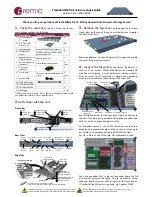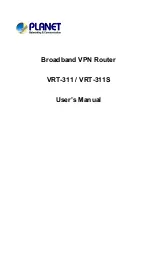
38
Predefined user roles
network-admin
Parameters
route-policy
route-policy-name
: Uses the specified routing policy to designate a backup next hop. The
route-policy-name
argument is a case-sensitive string of 1 to 63 characters.
Usage guidelines
RIP FRR is only effective for RIP routes that are learned from directly connected neighbors.
Do not use RIP FRR and BFD for RIP at the same time. Otherwise, RIP FRR might fail to work.
Equal-cost routes do not support RIP FRR. RIP FRR does not take effect when the backup route information
is the same as the primary route information.
Examples
# Enable RIP FRR and use routing policy
frr
to specify a backup next hop.
<Sysname> system-view
[Sysname] bfd echo-source-ip 1.1.1.1
[Sysname] ip prefix-list abc index 10 permit 100.1.1.0 24
[Sysname] route-policy frr permit node 10
[Sysname-route-policy-frr-10] if-match ip address prefix-list abc
[Sysname-route-policy-frr-10] apply fast-reroute backup-interface vlan-interface 1
backup-nexthop 193.1.1.8
[Sysname-route-policy-frr-10] quit
[Sysname] rip 100
[Sysname-rip-100] fast-reroute route-policy frr
filter-policy export
Use
filter-policy
export
to configure RIP to filter redistributed routes.
Use
undo filter-policy
export
to remove the filtering.
Syntax
filter-policy
{
acl-number
|
prefix-list
prefix-list-name
}
export
[
protocol
[
process-id
] |
interface-type
interface-number
]
undo filter-policy
export
[
protocol
[
process-id
] |
interface-type interface-number
]
Default
RIP does not filter redistributed routes.
Views
RIP view
Predefined user roles
network-admin
Parameters
acl-number
: Specifies an ACL by its number in the range of 2000 to 3999 to filter redistributed routes.
prefix-list
prefix-list-name
: Specifies an IP prefix list by its name, a string of 1 to 63 characters, to filter
redistributed routes.
















































